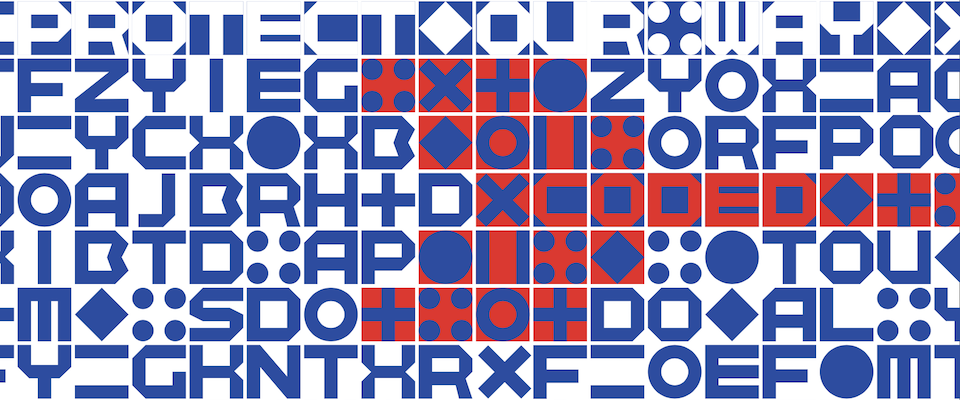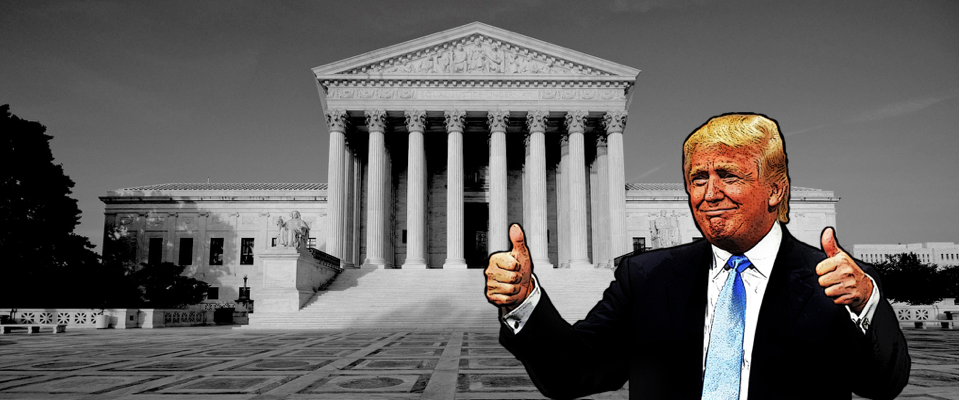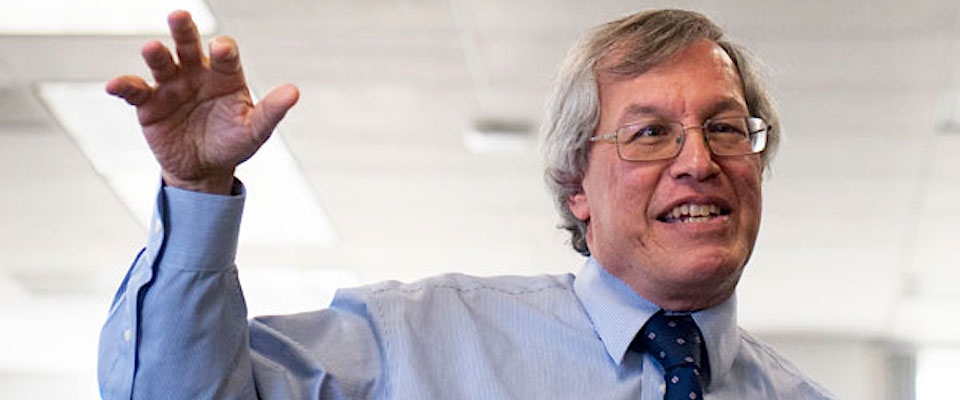Richard Nixon had always been more of a rat-catcher than a heartthrob. All jowls and forehead, and sporting that rictus of a smile, he was a perennial runner-up. Willy Loman by way of Yorba Linda.
In the summer of 1968, though, with the country in flames, Nixon rolled out the strategy that would vault him into the Oval Office. Middle America was spooked by urban uprisings and draft-board bombings, bra burnings and street crime. The Great Society seemed to many a zero-sum game in which minorities won and whites lost, and as much as average white voters hated the Yippies, they feared the Black Panthers.
Nixon saw this bundle of resentments for what it was: a gift. He would speak to this “silent majority,” but he would speak sotto voce—the better to avoid criticism from the media.
A series of TV commercials with Dirty Harry atmospherics drove home the message. Over jittery montages of burning buildings, screaming protesters, and bloodied cops, Nixon intoned, “I pledge to you, we shall have order in the United States.” On the surface there was nothing racialized about the ad; most of the faces on screen were white. But Nixon knew the burning buildings—stand-ins for Watts, Newark, and Detroit—would do the cognitive heavy lifting. A tagline at the end reinforced his message: “This time vote like your whole world depended on it: Nixon.”
Nixon’s win was proof of concept for what has come to be called “dog-whistle politics”—the use of implicit messages that play on submerged, often unacknowledged voter sentiments. The key to the trick is deniability: The dog-whistler can feign innocence even as the dogs form into packs. According to Ian Haney Lopez, a UC Berkeley law school professor and author of a recent book on the tactic, Dog Whistle Politics, the whistling is “designed to hide from critics and the media elite but also—significantly—from the target audience itself.”
For decades, the practice has mostly been associated with race, the great third rail of American politics. Lee Atwater, the GOP’s dog-whistling Svengali, traced its evolution back in 1981. “You start out in 1954 by saying, ‘Nigger, nigger, nigger.’ By 1968 you can’t say ‘nigger’—that hurts you, backfires. So you say stuff like, uh, ‘forced busing,’ ‘states’ rights,’ and all that stuff, and you’re getting so abstract. Now, you’re talking about cutting taxes, and all these things you’re talking about are totally economic things and a byproduct of them is, blacks get hurt worse than whites …” Atwater said. “‘We want to cut this,’ is much more abstract than even the busing thing, uh, and a hell of a lot more abstract than ‘Nigger, nigger.’”
Generations of politicians faithfully followed the template. Ronald Reagan contrasted “slum dwellers” and “welfare queens” with his “hardworking” supporters; below the Mason-Dixon line, he praised “states’ rights”—a thinly veiled reference to segregation. Bill Clinton, a master at stealing Republican issues, got into the act in the 1990s, bragging about cracking down on crime and “ending welfare as we know it.”
Indeed, Trump’s dark innovation consists of stretching plausible deniability to its breaking point and—critically—never, ever apologizing.
The election of the nation’s first black president ushered in a new era of dog-whistling. Although some of the invective was outright racist, most of it was coded to suggest that Barack Obama wasn’t a “real” American: He’s a secret Muslim; he “pals around with terrorists”; he “doesn’t seem like, well … one of us,” as one conservative writer put it in 2011. These arguments reached full flower with “birtherism,” which held that Obama wasn’t born in Hawaii but in Kenya.
Enter Donald J. Trump, King Birther and Republican presidential nominee. “Trumpism” is both noisier and wider ranging in its resentments than anything Nixon ever dreamed up, an omnibus of grievances speaking to white fears of losing ground in a rapidly changing America. Trump has called for a halt to Muslim immigration to America, suggested that undocumented immigrants have sparked a crime wave, and, in one memorable incident, vowed to personally fight Black Lives Matter protesters.
So blunt are Trump’s jeremiads that it may seem as if the long-established rules no longer apply. But pay closer attention and you’ll hear that most of his appeals are still coded—albeit just barely. His vow to build a “big, beautiful, powerful wall” on the southern border isn’t first-order racism, exactly. Rather, it’s an emergency measure to protect American jobs from cheap illegal labor, and American citizens from “criminal aliens.” (Ditto his plan to deport all 11.5 million undocumented immigrants while allowing “the good ones” to apply for reentry.) Likewise, Trump casts his call for “a total and complete shutdown” of Muslim immigration as an anti-terrorism measure—regrettable, but necessary until authorities “can figure out what is going on.” This rhetoric is far more out front than Lee Atwater’s “abstractions” of busing and welfare, but it is coded nonetheless.
Indeed, Trump’s dark innovation consists of stretching plausible deniability to its breaking point and—critically—never, ever apologizing. He has been larger-than-life for most of his life, a veteran of reality TV and WrestleMania, the maverick CEO who fires supplicants and body slams his opponents. He is the straight shooter, the guy who gives you the facts “plainly and honestly” because the nation is under siege and time is running out—“We cannot afford to be so politically correct anymore.” Unlike traditional politicians, Trump complements his whistling with the vocabulary of an insult comic, tagging his enemies as “losers,” “idiots,” and “haters.” There is nothing subterranean about this—just a grade-school bully plying his trade, and his supporters love him for it. It’s only when Trump drops the coding that he gets into trouble; for example, his waffling over whether to disavow the support of former KKK Grand Wizard David Duke. “He’s redefining the bounds of acceptability,” Berkeley political scientist Eric Schickler points out. “No shame. No fear. That’s new.”
Unfiltered misogyny, much like outright racism, probably isn’t a winning electoral formula. Now that Trump is locked in battle with Hillary Clinton, the first female presidential candidate of a major party and a high-wattage celebrity in her own right, we will see if he can stay on the right side of the line. Clinton is simultaneously the most loved and most hated woman in modern American politics, and brings plenty of her own baggage to the contest—particularly the perception that she’s a pay-to-play politician with no moral compass.
Trump’s challenge is to exploit voter concerns about Clinton’s character without mocking her gender or her appearance. If he can manage that—feeding the electorate a steady diet of “Crooked Hillary” taunts and dog whistles without stepping over the line—he might be able to rely on gender bias to do the rest. Sexism works in subterranean ways, punishing ambitious women who violate traditional ideas of femininity. If Clinton is to win, she’ll need to overcome these deeply embedded notions about what, exactly, a president should look like.
Half a century on from the turmoil of 1968, Donald Trump took the stage at the Republican convention in Cleveland, his face glowing under the spotlights as if infused with beta-carotene. Before him, a sea of delegates waved “Make America Great Again” signs. Cribbing from Nixon’s old playbook, Trump hit all the dark, familiar notes and then some, conjuring a vision of a country slipping into chaos. “Our convention occurs at a moment of crisis for our nation,” he declared. “The attacks on our police, and the terrorism in our cities, threaten our very way of life.”
As the crowd chanted “Build That Wall!” Trump indicted the Obama administration for the death of Sarah Root, a 21-year-old Nebraskan killed by a drunk-driving undocumented immigrant. He warned that hordes of illegals were “roaming free to threaten peaceful citizens.” The anger crescendoed, the auditorium filling with boos. Root, Trump thundered, was “one more child to sacrifice on the altar of open borders.”
Social mores being what they are, it’s a fair bet that once you get past the fringe of neo-Nazi fanboys, few Trump supporters would call themselves racists. Plenty of them, however, are susceptible to fear-mongering about the “other” in their midst.
Many detect bigotry in lines like this. The New York Times editorial board called Trump out; so did the Houston Chronicle, which endorsed Mitt Romney in 2012. In June, Romney himself warned of Trump’s “trickle-down racism” and said he wouldn’t endorse Trump. “I will not sign up for that.” Crucially, though, not everyone hears it this way. Interviewed after the GOP convention, a Hispanic Republican delegate told the AP that he didn’t perceive anything racial in Trump’s speech—just a commitment to putting the needs of American citizens first. “I think people are reading too much into it.”
The power of the dog whistle derives from this disconnect. In 2001, Princeton politics professor Tali Mendelberg devised an experiment in which participants watched fake news broadcasts discussing a fictional politician’s stance on welfare. An onscreen graphic showed poor African Americans. In one story, the newscaster reports that the candidate “says that people, especially African Americans, take advantage of welfare.” In the other broadcast, otherwise identical, the newscaster didn’t mention race. Mendelberg found that participants were more likely to support the fictional politician when race was only implicit. When the message was out front, support dropped sharply. Summarizing her findings, she wrote, “The subtext at times [is] more powerful than the text.”
Social mores being what they are, it’s a fair bet that once you get past the fringe of neo-Nazi fanboys, few Trump supporters would call themselves racists. Plenty of them, however, are susceptible to fear-mongering about the “other” in their midst. Based on data from this year’s American National Election Study, Hamilton College political scientist Philip Klinkner found that nearly 90 percent of white respondents who believe that Obama is a Muslim also support Trump. This belief is the single best predictor of Trump support—correlating more closely than economic anxiety or even GOP membership. In another proxy, a Washington Post/ABC survey found that 54 percent of Trump voters agreed that whites losing jobs to minorities was a bigger problem than minorities losing out to whites.
Though the prejudice is much closer to the surface than it used to be, the vast majority of Trump’s tough talk still leaves at least a sliver of wiggle room, allowing the listener to fill in the blanks as he or she wishes. The anti-immigration rhetoric is ostensibly about public safety and American jobs, not biology or blood. In theory, Trump’s “border crossers” could be from anywhere. Most of them just happen to be from Latin America. For all of Trump’s bluntness, “He doesn’t say, ‘I’m here to represent the interests of white people against scary brown people,’” Haney Lopez says. “He doesn’t use the n-word. He says, ‘We’re going to take our country back.’”
To Trump’s critics, his strenuous denials of bias (“I am [sic] least racist person there is,” he tweeted) might feel like gaslighting. To his supporters, though, the denials make the coding more credible. Trump is telling it like it is, and if the media attacks him for it, well, that just means he’s doing something right. His status as an anti-PC warrior, meanwhile, serves as both sword and shield, allowing him to make over-the-top comments and refuse to apologize. That’s the Trump brand in a nutshell, says Berkeley linguist and NPR commentator Geoffrey Nunberg, “an incantation that allows him to say this crap and deflect criticism.”
It’s only when Trump abandons coding entirely that he suffers. This spring, he accused Gonzalo Curiel, the judge presiding over one of the lawsuits against the faux–real estate college Trump University, of bias due to his Mexican heritage. (Curiel was born in America.) “This judge is giving us unfair rulings,” Trump told CNN. “But we are building a wall. He’s a Mexican. We’re building a wall between here and Mexico.”
There was no fig leaf in evidence—no talk of crime or terrorism or corruption. Nothing except the judge’s heritage. It was too much for GOP leaders like Paul Ryan, who pronounced it “the textbook definition of a racist comment.” More significantly, Trump dropped between three and six points in the polls that week. He didn’t apologize, but he quit talking about Curiel.
Official Trump merchandise looks like you’d expect it to look. T-shirts, golf shirts, pennants, those ubiquitous hats, all printed in patriotic colors and bearing the slogan Make America Great Again. By contrast, bootleg Trump merch is a symphony of misogyny, an ever-flowing stream of Life’s a Bitch: Don’t Vote for One buttons, and stickers blaring Trump That Bitch! and Hillary Sucks but Not Like Monica.
In fact, critics have been talking about Clinton’s voice for decades. The discussion is both exhaustive and illuminating. Her voice isn’t breathy or cute but is flat, declarative, and utterly normal; in its sheer ordinariness it violates traditional norms about how feminine voices “should” sound.
Trump’s history of calling women who criticize him “fat pigs” and “dogs” is well known, as are his retrograde views on wifely duties and childcare. (“I won’t do anything to take care of them,” he said in 2005. “I’ll supply funds and she’ll take care of the kids.”) Trump has made a few forays into outright misogyny this election season; he mocked primary opponent Carly Fiorina’s face, and suggested that Fox News host Megyn Kelly was hostile toward him because she was menstruating. But he has steered mostly clear of such rhetoric regarding Clinton, restricting himself to schoolyard insults (she’s “the devil,” “a world-class liar,” and “the most corrupt person ever to seek the presidency”) and dog whistles, deriding her pantsuits (unattractive), her laugh (a cackle), and her tone of voice (shrill).
In fact, critics have been talking about Clinton’s voice for decades. The discussion is both exhaustive and illuminating. Her voice isn’t breathy or cute but is flat, declarative, and utterly normal; in its sheer ordinariness it violates traditional norms about how feminine voices “should” sound. As a Fox news analyst put it in 2008, “When Barack Obama speaks, men hear ‘Take off for the future.’ And when Hillary Clinton speaks, men hear ‘Take out the garbage.’” In case viewers didn’t get the point, the onscreen text spelled it out: “Clinton’s ‘nagging voice’ is reason she lost male vote.”
Similar reviews greeted her speech accepting the presidential nomination. “Instead of lecturing 2 citizens @HillaryClinton needs 2 have conversation w/us,” tweeted the foreign policy expert Steve Clemons. “Modulate voice. Tell stories. Set hopes. Smile.” Howard Stern, meanwhile, ran a joke ad for a fake “Hillary Voice Conversion App,” which promised to translate her “shrill voice” into a flirty giggle.
Trump regularly plies these waters, too. At a rally in Fresno this spring, he riffed on a Clinton speech. “I’m not going to say it because I’m not allowed to say it because I want to be politically correct,” he began, launching into the naughty-schoolboy shtick he often employs. “So I refuse to say that I cannot stand her screaming into the microphone all the time.” Then he covered his ears, as if shielding them from his opponent’s harpy shrieking. “I just couldn’t stand it. I got such a headache, oh please.”
It’s not necessarily sexist to dislike Clinton’s voice, of course, but it’s worth noting that Bernie Sanders, an inveterate shouter, took very little heat for his tone.
Rachel Bernhard, a doctoral student in Berkeley’s political science department who studies voter evaluations of female politicians, notes that England’s former Prime Minister Margaret Thatcher took years of vocal lessons to lower her voice. Says Bernhard, “It’s clear we don’t police men’s vocal patterns the same way.”
Much of the discussion around Clinton goes far deeper than dog-whistling, entering the realm of subconscious bias. Criticism of Clinton’s character and likeability—she’s a cold fish, she’s a liar, she’s a know-it-all—has been a constant this election season. In a recent Morning Consult survey, 77 percent of respondents said “she doesn’t care about people like me,” and 81 percent said “she says one thing but does another.” Indeed, the dominant criticism of Clinton from both left and right this campaign has been her alleged untrustworthiness. (As it happens, PolitiFact rated Clinton the most honest candidate this cycle.) The #WhichHillary Twitter tag, for example, a top trender at one point that catalogs a long list of “flip-flopping” charges, is primarily the work of Bernie supporters, not right-wingers.
Policy disagreements aside, many judgments on Clinton’s character appear to be heavily gendered. Our baseline assumptions of how politicians should look, sound, and act are all coded male. And although it’s acceptable, even encouraged, for a man to aggressively climb the ladder, when women do it we judge them harshly. This catch-22, called the “double-bind,” is familiar to professional women of all kinds. “Women leaders are expected to be both feminine and competent, and they cut against each other,” says Professor Jack Glaser, a Berkeley political psychology researcher.
“Sexism is there in our expectations of what makes for a great leader,” Bernhard says. “We have these templates about what a great leader can look like. And those templates are male.” In a recent Harvard study, researchers found that female politicians were seen as less likeable and caring than their male counterparts, and respondents were more likely to view females seeking political power with “contempt and disgust.” Eric Schickler says, “Clinton’s criticized for being ambitious and calculating and self-serving—that’s how politicians are!”
Voter discomfort appears to be at its peak not when women wield power, but when they’re trying to gain it. Clinton’s approval ratings have been at their lowest when she’s campaigning—whether for first lady, senator, or president. Conversely, her numbers rocket once she’s doing the job. She hit 66 percent in 1998 as first lady, and 66 again as secretary of state in 2009.
The phenomenon isn’t just restricted to Clinton. Elizabeth Warren faced similar criticism in her Senate run. “She always seems annoyed, impatient that people don’t know how right she is,” one local columnist wrote. “She’s got to stop the finger wagging; it adds to her strict schoolmarm appearance and bossy manner.” Now, of course, she’s one of the Democratic party’s most beloved figures.
The problem is compounded for Clinton because she’s been in the public eye for so long—and gender-stereotyped from the start. Her gender is at the core of her public persona, adored and loathed in equal measure and defined by Cookiegate and Hillarycare and the Lewinsky scandal and Benghazi. “These ideas of Clinton as shrill, dominating, emasculating—they already have a track record,” Haney Lopez says. “They’re already burned into the psyche of anyone politically conscious in the 1990s.” As a result, he says, “It’s much easier to put them into play now.” As the political scientist Jennifer Lawless told Vox, “It can be hard to untangle ‘sexism’ from ‘Clintonism.’”
Just as unknowable, perhaps, is how these sexist codes will affect Clinton’s vote tally come November 8. The impact is impossible to predict, Bernhard says, because Clinton is a first—a major party has never nominated a woman. “We just don’t have a basis for comparison.”
A recent poll conducted by Fairleigh Dickinson University in New Jersey tried to account for the possibility of gender bias. Before being asked which candidate they supported, half the respondents were asked a different question: Who makes more money in your household, husband or wife? Without the initial question, respondents picked Clinton over Trump by 19 points; with the question, her lead dropped to 11.
The vast majority of the literature, however, suggests there’s no such thing as “gender price,” according to Laura Stoker, a political science professor at Berkeley. Party affiliation, for instance, appears to play a greater role than gender does in choosing a candidate. Then again, she adds, despite all the research, “I’d be shocked if she didn’t face a penalty for being a woman.”
At this point there are far more questions than answers. It’s conceivable that Trump will eke out a win by talking more like George Wallace than George W. Bush—an outcome virtually nobody would have imagined a year ago. But if Clinton wins, it will go a long way toward proving that longstanding gender prejudices, though powerful, can be overcome. Then, too, her job approval numbers will probably spike. She’ll no longer be so “unlikeable.”
As for the rawness of our discourse, maybe it will be clarifying to get things out in the open, to surface these long-submerged dialogues. A civic draining of ill humors. Or maybe not. Jack Glaser reminds us: “They say the antidote is sunlight, but some bacteria are resistant to sunlight.”
Chris A. Smith is a San Francisco writer and a college politics and journalism teacher. He writes frequently for California.





















